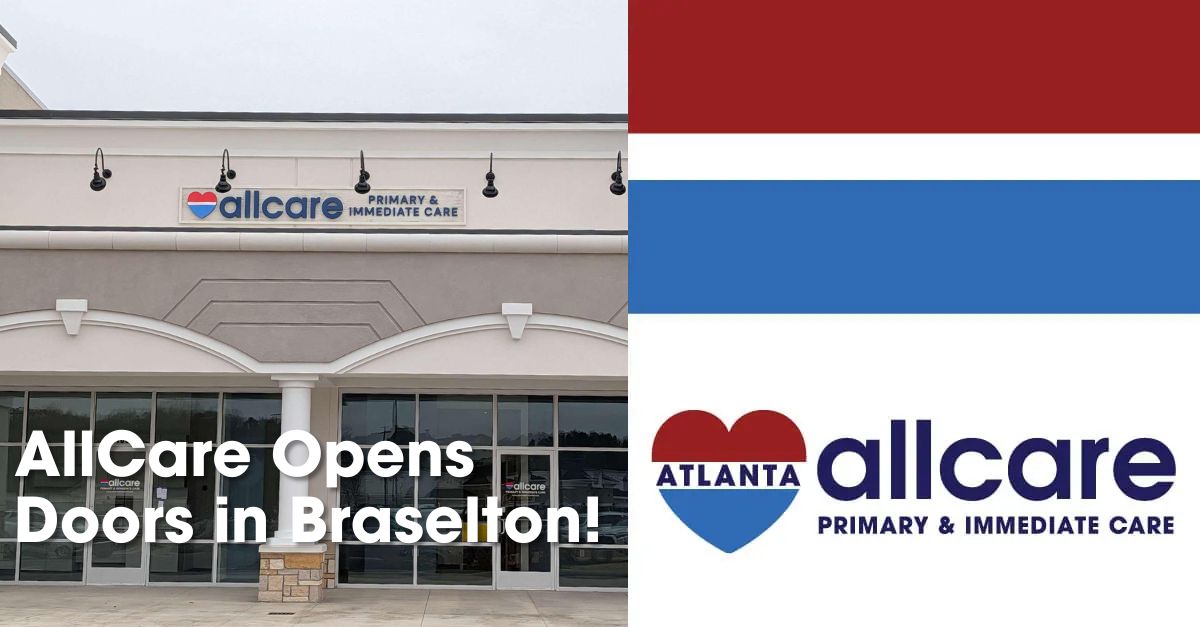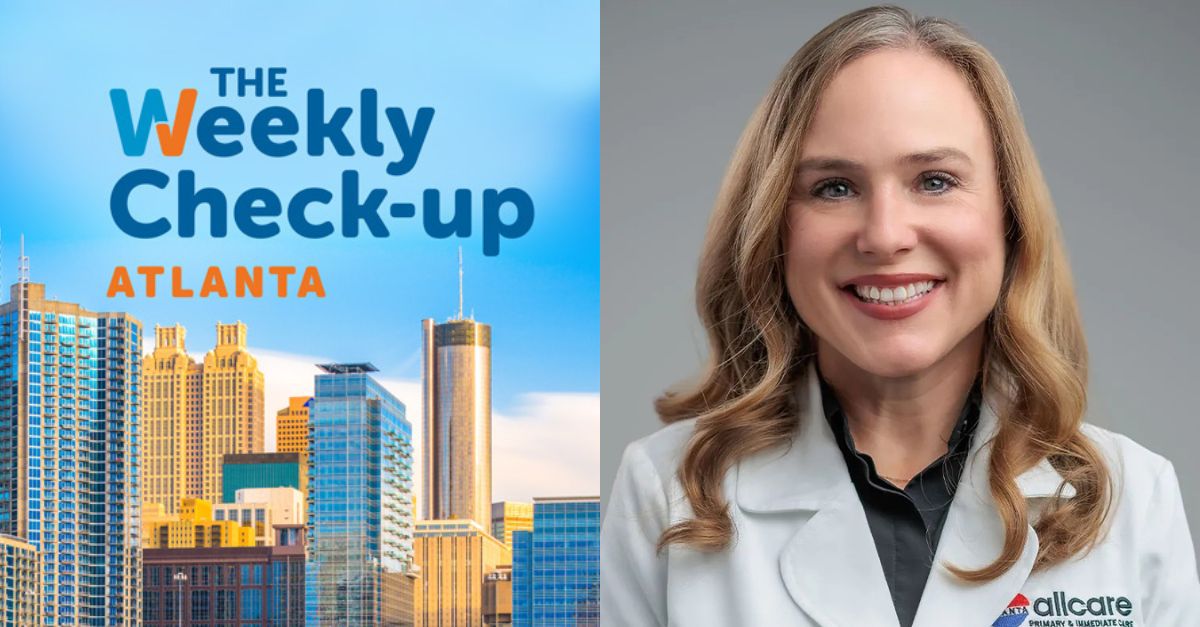AllCare is pleased to announce the opening of its newest location in Braselton, expanding access to high-quality, patient-centered healthcare for...
Hypertension Treatment in Georgia
Effective Hypertension Management
At AllCare Primary & Immediate Care, we offer a comprehensive approach to high blood pressure management. Our experienced team of primary care physicians is dedicated to providing thorough exams, a personalized hypertension treatment plan, expert guidance, and compassionate care that prioritizes your well-being throughout your journey.

Why Hypertension Management Matters:
Our Approach to Hypertension Management
According to a report from the American Heart Association, high blood pressure contributes to nearly 1,000 deaths per day. Almost half of all those affected are unaware they have hypertension, which is why physicians often refer to it as “the silent killer.” That’s why you should get your blood pressure checked every year if you’re age 40 or over or between the ages of 18 and 39 with high-risk factors.
At AllCare Primary & Immediate Care, we believe everyone deserves to live a healthy and fulfilling life. And we understand how important it is to manage your hypertension symptoms. Our knowledgeable experts work closely with patients to develop personalized high blood pressure treatment plans. By empowering patients to make informed decisions about their health, we provide them with the knowledge they need to successfully manage hypertension.
Our High Blood Pressure Test and Treatments in Georgia

What is Hypertension (High Blood Pressure)?
High blood pressure, or hypertension, is a common condition that affects one in three adults. If you have high blood pressure, the force of the blood pushing against the artery walls is too high, and your heart needs to work harder to pump blood. High blood pressure can lead to severe health conditions, including heart attack or stroke, and the only way to know you have it is to get regular checkups.
What are the Symptoms of High Blood Pressure?
High blood pressure (hypertension) is often called the “silent killer” because it typically has no noticeable symptoms until it reaches severe or life-threatening stages. However, in some cases, people may experience signs of this condition. Here are the most common high blood pressure symptoms:
- Headaches
- Blurred vision
- Chest pain
- Shortness of breath
- Dizziness
- Nosebleeds
- Nausea and vomiting
- Anxiety
- Confusion
- Buzzing in the ears
- Heart Palpitations


Online Doctor Visits and Telehealth Services
Experience the convenience of telehealth appointments at AllCare Primary & Immediate Care. Our telemedicine services are designed to provide you with seamless access to healthcare without the need to leave your home. Whether you need an online doctor’s appointment for immediate or primary care, AllCare’s got you covered. With our online telehealth services currently available to individuals located in Georgia, you can connect with our experienced urgent and primary care physicians via secure video calls.
At AllCare Primary & Immediate Care, we are expanding our virtual healthcare access to all services previously offered in person. This includes:
Who Can Benefit from Hypertension Management
Because high blood pressure often goes undetected and can cause many other health conditions, there are several groups of people who can benefit from consistent blood pressure monitoring, including:
- Adults 65 or older who currently have high blood pressure and even those who aren’t experiencing any symptoms
- Adults under 65 who may have a family history or are at risk for cardiovascular disease
- Adults with chronic conditions, including kidney disease, diabetes, or coronary artery disease
- Adults with blood pressure over 130/80
- Adults who are currently on blood pressure medications to ensure treatment is well-tolerated
- Pregnant women should be monitored to prevent complications of high blood pressure, including heart disease and diabetes


How To Get Hypertension Treatment at AllCare Primary & Immediate Care
Getting care for your hypertension is as easy as scheduling an appointment with one of the knowledgeable primary care physicians at AllCare Primary & Immediate Care. If your hypertension is discovered during an urgent care visit, you can find primary care physicians to help with on-going management of your hypertension in the same convenient location. To schedule your appointment:
- Schedule Your Consultation: Contact AllCare to schedule an appointment with one of our experienced doctors to discuss your hypertension treatment and concerns.
- Share Your Medical History: During your consultation, you’ll be asked to provide relevant medical information to help our doctors better understand your family history and overall health.
- Receive Personalized Treatment: During your consultation, we will evaluate your symptoms and develop a customized treatment plan tailored to your individual needs. Treatment options may include medication management and lifestyle recommendations to help you control your symptoms effectively.
Don’t let hypertension go unchecked. Take the first step to a healthier life by booking an appointment at AllCare Primary & Immediate Care.
Frequently Asked Questions
What causes hypertension?
he exact cause isn’t known, but high blood pressure usually develops over time, and there are certain things that may increase your risk, including:
- Smoking
- Obesity
- Lack of exercise
- Too much salt
- Race—Black Americans often have higher and more severe blood pressure than White Americans
- More than 1-2 alcoholic beverages per day
- Being older
- Family history
- Chronic kidney disease
- Diabetes
- Stress
- Insufficient intake of potassium and magnesium
How do you know if you have high blood pressure?
Since high blood pressure doesn’t present with many recognizable symptoms, you may not know you have it. The only way to get a proper diagnosis is to have it checked regularly by your doctor.
Here are some ways to check your blood pressure:
- A healthcare provider will measure your blood pressure using a cuff and a monitor.
- You can use an automatic blood pressure cuff at home. It’s important to follow the instructions carefully and take measurements at different times of day.
- Many pharmacies offer free blood pressure machines.
What is normal blood pressure?
A normal high blood pressure reading is 120 mm Hg or less systolic (top number) and less than 80 mm Hg diastolic (bottom number), or as it’s commonly referred to, 120/80. If your blood pressure is between 120-139 over 80-89, it’s considered pre-hypertension.
With a reading of 140/90 or above, you are diagnosed with high blood pressure.
If you have a reading of 180/120 more than once, it’s a hypertensive crisis, and you should seek medical treatment immediately.
Older adults’ arteries may stiffen, so while the numbers listed above are the standard, it’s not uncommon for them to have a reading under 150/90, which is still considered ideal.
How to lower blood pressure
While hypertension management often requires medication, there are a number of lifestyle changes you can make on your own to reduce your risk, including:
- Eating a healthy diet
- Exercising regularly
- Watching your weight
- Limiting alcohol and caffeine consumption
- Quitting smoking
- Getting enough sleep
- Reducing your stress
- Reducing your salt intake
- Controlling your blood sugar and cholesterol
In addition to the above lifestyle changes, it’s important to work with your doctor if you currently have high blood pressure to reduce your risk for heart attack, stroke, and other serious medical conditions.
What are some risks of high blood pressure?
Hypertension that’s not managed properly can cause a number of health conditions, including heart attack and strokes. Some additional risks include:
- Heart disease
- Kidney disease or failure
- Vision loss
- Cognitive decline or dementia
- Aneurysm
- Pregnancy complications
schedule your hypertension treatment appointment
The Latest Healthcare News
Check out our blog to learn more from our team about the latest medical advancements, health tips, and primary care news.
Lauren Schwartz, F.N.P.-C. of AllCare Appeared on “The Weekly Check-Up” Radio Show
Lauren Schwartz, F.N.P.-C. of AllCare Primary & Immediate Care appeared as a featured guest on “The Weekly Check-Up” on December 21, 2025. The...
AllCare’s Dr. Racheal Daniels Discusses Holiday Health and Primary Care on WSB-TV’s “Daily 2”
Dr. Racheal Daniels of AllCare Primary & Immediate Care recently appeared on WSB-TV’s Daily 2 to discuss the importance of prioritizing primary...












